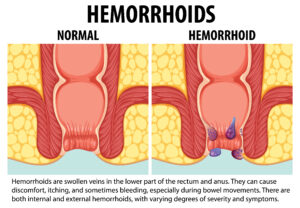
Introduction
Digestive health is a critical part of our overall well-being, but it’s often overlooked until problems arise. From the discomfort of heartburn to the pain of hemorrhoids, gastrointestinal (GI) issues can disrupt daily life. This article dives into the most common GI problems, their causes, and practical solutions to manage and prevent them. If you’re struggling with any of these issues, seeking advice from the top 10 gastroenterologist in Surat can provide you with the relief and treatment you need.
1. Heartburn: The Burning Sensation
What Is Heartburn?
Heartburn occurs when stomach acid flows back into the esophagus, causing a burning sensation in the chest or throat. Common triggers include spicy foods, caffeine, alcohol, and overeating.
How to Manage It:
- Eat smaller meals and avoid lying down right after eating.
- Limit foods that trigger acid reflux, like fried or spicy dishes.
- Over-the-counter antacids can provide temporary relief, but persistent heartburn may require medical attention.
Prevention Tip: Maintain a healthy weight and elevate the head of your bed to reduce nighttime symptoms.
2. Bloating: Feeling Full and Uncomfortable
What Causes Bloating?
Bloating is often a result of gas buildup in the stomach or intestines. It can be caused by eating too quickly, consuming carbonated drinks, or intolerances to certain foods like dairy or gluten.
How to Manage It:
- Eat slowly and chew your food thoroughly.
- Identify and avoid foods that trigger bloating.
- Try probiotic-rich foods like yogurt to promote gut health.
Prevention Tip: Regular exercise can improve digestion and reduce bloating.
3. Constipation: A Common Digestive Complaint
What Is Constipation?
Constipation is characterized by infrequent or difficult bowel movements. It’s often caused by a low-fiber diet, dehydration, or a sedentary lifestyle.
How to Manage It:
- Increase your fiber intake with foods like fruits, vegetables, and whole grains.
- Drink plenty of water throughout the day.
- Regular physical activity can stimulate bowel movements.
Prevention Tip: Establish a routine by going to the bathroom at the same time each day.
4. Diarrhea: When Things Move Too Fast
What Causes Diarrhea?
Diarrhea can result from infections, food intolerances, or even stress. It’s your body’s way of quickly eliminating irritants from the digestive tract.
How to Manage It:
- Stay hydrated with clear fluids to prevent dehydration.
- Avoid greasy, spicy, or sugary foods until symptoms subside.
- Over-the-counter remedies like loperamide can provide relief for mild cases.
Prevention Tip: Practice good hygiene, such as washing your hands regularly, to prevent infections.
5. Irritable Bowel Syndrome (IBS): The Mystery Condition
What Is IBS?
IBS is a chronic condition that affects the large intestine. Symptoms include abdominal pain, cramping, diarrhea, and constipation.
How to Manage It:
- Identify and avoid trigger foods like caffeine, alcohol, and fatty meals.
- Consider a low-FODMAP diet to reduce symptoms.
- Stress management techniques like yoga or meditation can help.
Prevention Tip: Keep a food and symptom diary to understand what worsens your IBS.
6. Hemorrhoids: Painful Swollen Veins
What Are Hemorrhoids?
Hemorrhoids are swollen veins in the rectal area that can cause pain, itching, and bleeding. They’re often a result of straining during bowel movements or prolonged sitting.
How to Manage It:
- Use over-the-counter creams or suppositories to reduce discomfort.
- Sit in a warm bath (sitz bath) to ease symptoms.
- Avoid straining by maintaining soft stools with a high-fiber diet.
Prevention Tip: Stay active and avoid sitting for long periods to reduce pressure on the rectal area.
7. Acid Reflux: More Than Just Heartburn
What Is Acid Reflux?
Acid reflux occurs when stomach acid irritates the lining of the esophagus. If untreated, it can lead to complications like esophagitis or Barrett’s esophagus.
How to Manage It:
- Avoid eating late at night or consuming trigger foods.
- Maintain a healthy weight to reduce pressure on your stomach.
- Prescription medications, like proton pump inhibitors, may be necessary for chronic cases.
Prevention Tip: Quit smoking, as it weakens the lower esophageal sphincter and exacerbates acid reflux.
8. Peptic Ulcers: Painful Sores in the Stomach
What Are Peptic Ulcers?
Peptic ulcers are sores that develop on the lining of the stomach or small intestine, often caused by H. pylori bacteria or long-term NSAID use.
How to Manage It:
- Avoid alcohol, caffeine, and spicy foods, which can irritate ulcers.
- Take prescribed medications like antibiotics or acid reducers.
- Eating smaller meals can help minimize discomfort.
Prevention Tip: Don’t overuse painkillers like ibuprofen or aspirin without medical advice.
9. Gallstones: Digestive Blockers
What Are Gallstones?
Gallstones are hardened deposits of bile that can block the flow of digestive fluids. They can cause pain in the upper abdomen, nausea, or vomiting.
How to Manage It:
- A low-fat diet can help prevent gallstone formation.
- Severe cases may require gallbladder removal surgery.
- Seek medical attention if you experience persistent pain or symptoms.
Prevention Tip: Maintain a healthy weight and avoid rapid weight loss, which can trigger gallstones.
10. Seeking Professional Help
If you experience persistent or severe gastrointestinal symptoms, consulting a specialist is essential. The top 10 gastroenterologist in Surat can provide personalized care and treatment for a wide range of GI issues. Early diagnosis and intervention can make a significant difference in your overall health and well-being.
Final Thoughts
From occasional heartburn to chronic hemorrhoids, gastrointestinal issues can affect anyone. By understanding the causes and management strategies, you can take steps to improve your digestive health. For persistent symptoms, don’t hesitate to reach out to a trusted gastroenterologist in Surat for expert guidance. Remember, a healthy gut is key to a healthy life.
